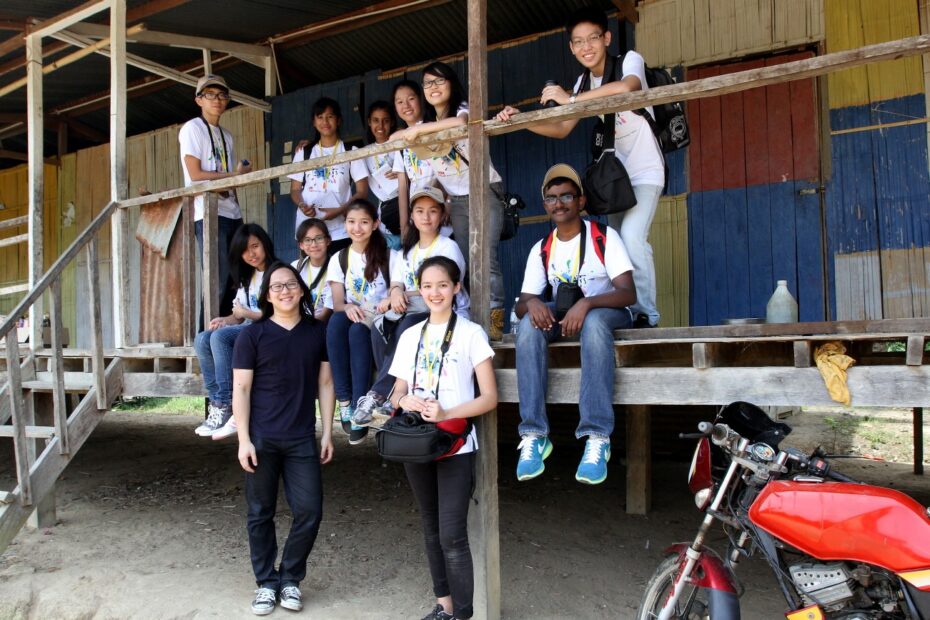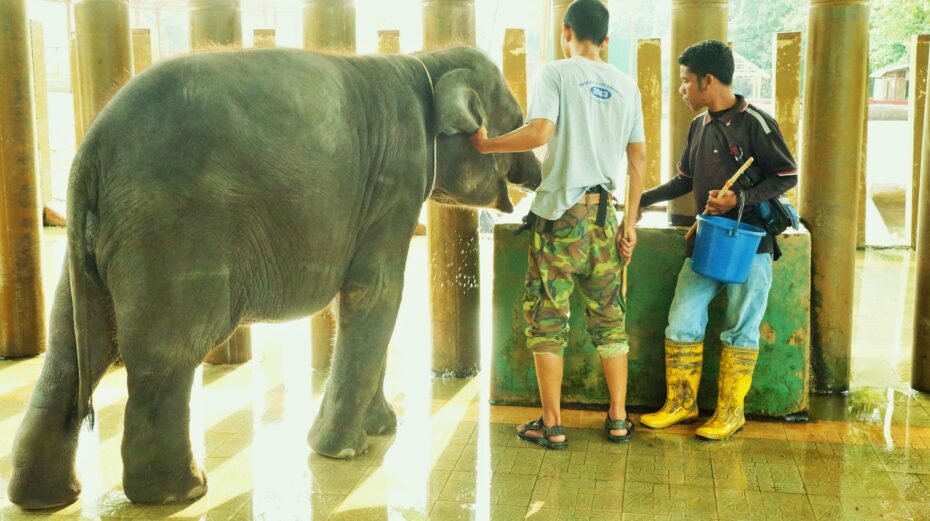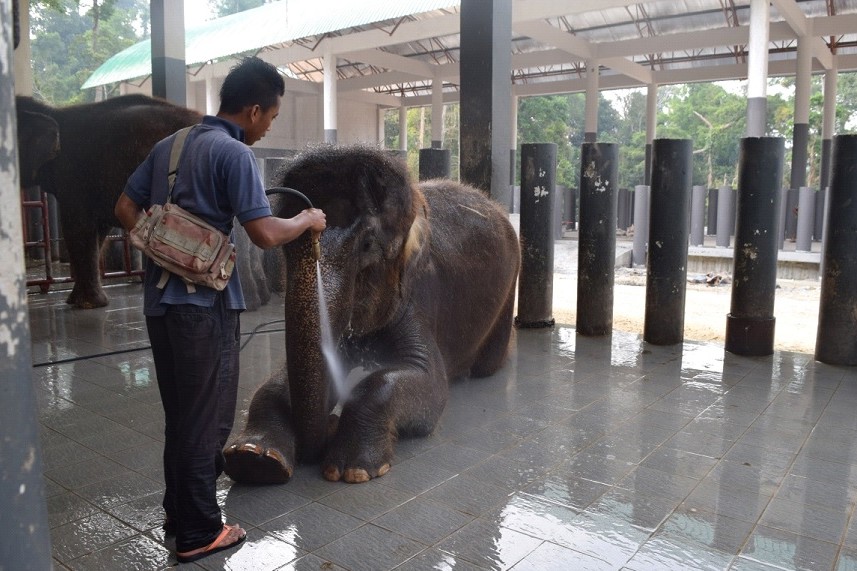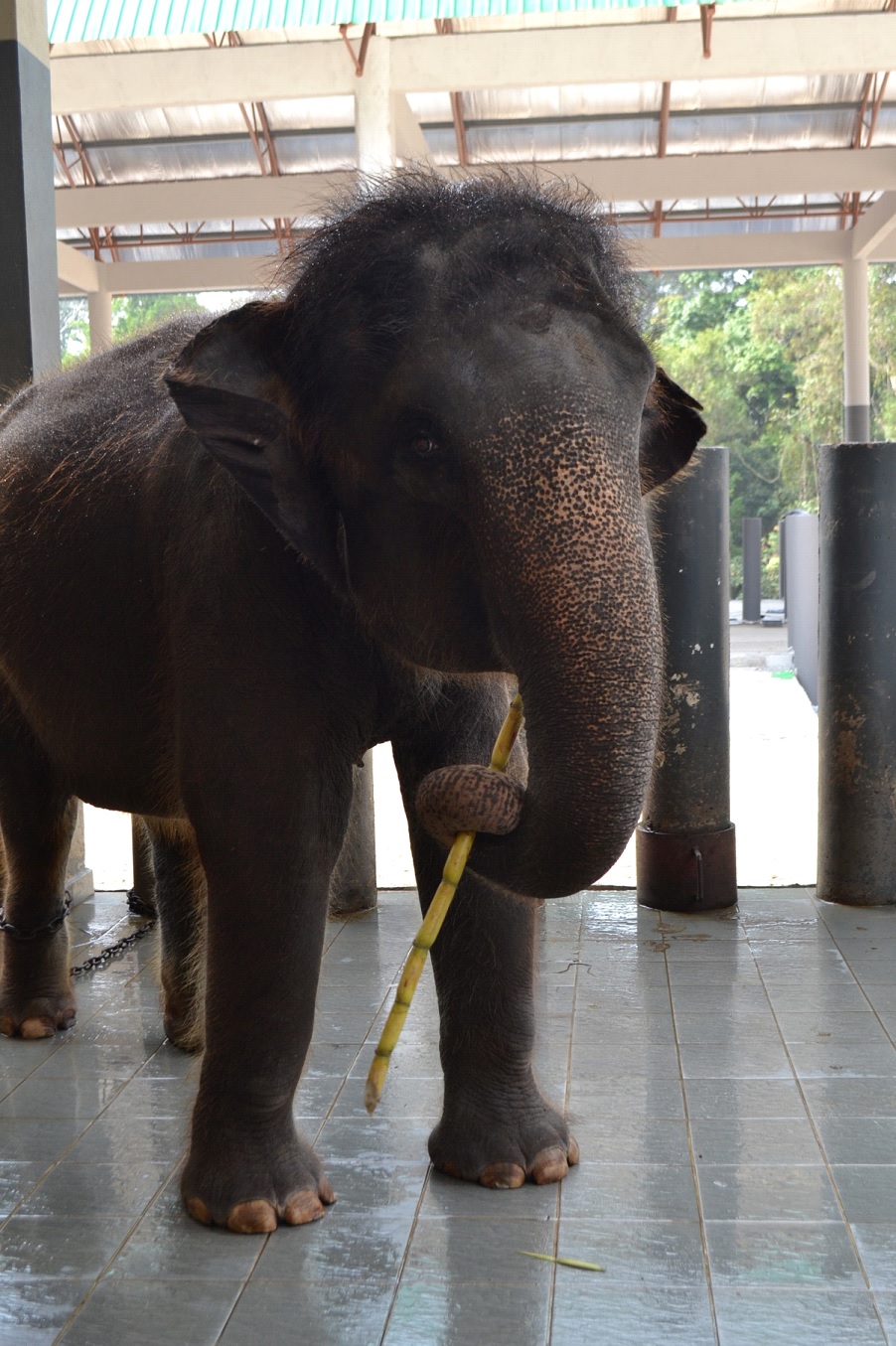By #TEAMIAN
brats@thestar.com.my

#TeamIan from BRATs Raub 2015 posing in front of the long house at the Sungai Dalam orang asli village. SAMUEL ONG / THE STAR
DESPITE being abandoned by his herd, Lasa is an elephant that’s never short of a family.
Lasa was just five when he was separated from his herd in the wild, with wounds all over and only one tusk to defend himself.
Thankfully, the National Elephant Conservation Centre (NECC) rescued him and brought him to their elephant sanctuary, an amazing facility in Kuala Gandah, Pahang.
The NECC has been home to hundreds of rescued and translocated elephants like Lasa since it was established in 1989.
Mohd Jefry Yahya has been Lasa’s mahout (or elephant trainer) for three years. He trains and takes care of Lasa on a daily basis, and though it’s hard work, it has been the best thing he’s ever done.
“I want to make this my life’s work,” said Jefry, 30.
“Working with Lasa has given me a new experience, and he motivates me to want to do more for elephants everywhere.”
The mahouts in NECC are dedicated to their jobs, bathing the elephants three times a day, and clearing the faeces from their enclosures.
And clearing elephant faeces isn’t quite the same as throwing out cat litter.
At NECC, they handle tonnes of elephant poop a day, so it’s quite the logistical nightmare.
Still, Mohd Husni Mat Fauzi, 26, loves his job as it gives him time to embrace nature as well as bond with the elephants.
“I used to work as a construction worker in the village, but I prefer this because it’s less stressful working with animals,” Husni said.
He puts in a lot of time into training and taming Kasturi, the elephant he takes care of. Each elephant is assigned two mahouts.
“It’s frustrating when the elephants don’t listen to what we say,” he said.
“Kasturi tends to have mood swings, but it’s hard to stay mad because I’m so fond of her.”
The elephants in the sanctuary have monthly check-ups by doctor Ahmad Abd Ghani, who takes regular blood tests and samples of the elephants’ faeces.
“It is our responsibility to take good care of our elephants. We treat them like our own family,” Ahmad said.
Ardynillan Richard, 19, is one of the youngest mahouts at NECC, but he has already formed a close bond with the elephants.
“When they get sick, we always feel worried for them. Sometimes we even take turns watching over them at night,” he said, while moving a whole truckload of banana tree trunks for the elephants’ lunch.
It can, of course, be a dangerous job.
Ardynillan said he loves how the elephants all have different personalities – some are quiet, some are playful and some are manja, but some can be aggressive.
“You just have to be patient with them. That’s very important. You can’t be a mahout if you’re not patient,” he said.
Ahmad added: “The elephants always listen to orders, and they’re very smart. But during mating season, even the most peaceful elephants can become aggressive.”
Interestingly, Jefry said injuries from elephants accidentally stepping on people’s feet almost never happen.
“They’re quite sensitive to that. They can feel it immediately if your foot is beneath theirs, and they won’t put their foot down.”
Another fascinating fact about elephants is their incredible memory.

The baby elephants at the National Elephant Conservation Centre in Kuala Gandah have to be handled firmly but lovingly.
“They remember everything!” said Jefry. “They can recognise a person by their scent after several years.”
It’s not just the mahouts who have a strong bond with the elephants – the elephants feel it with each other too!
When 77-year-old elephant Cek Mek died two years ago, her friend Lukimala became depressed.
“She refused to look at anyone for weeks,” Jefry said. “They had formed a strong bond over the years while they were working together to guide other wild elephants.”
As Ardynillan said, patience is needed, especially when dealing with sad or sulking elephants.
Their calves are handled firmly but lovingly to teach them discipline early on.
Husni said: “In a way, elephants are like us. They have feelings too, and it’s important to treat them not as beasts, but as creatures that possess a soul.”















Leave a reply